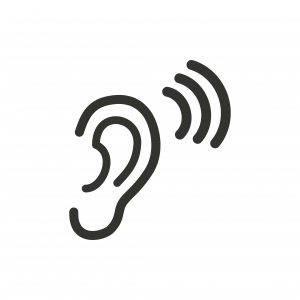 An auditory processing disorder (APD) is an impairment of the ability to process sound. This arises from damage to the areas of the brain responsible for processing sounds.
An auditory processing disorder (APD) is an impairment of the ability to process sound. This arises from damage to the areas of the brain responsible for processing sounds.
APD is not a hearing problem caused by damage to the ears and it cannot be helped by the prescribing of hearing aids, though it can co-occur with hearing impairment. In this case, the hearing impairment should be managed appropriately.
Auditory processing disorder may also occur with other communication and cognitive problems.
The impact of auditory processing difficulties can be quite significant and have a marked effect on the person’s communication abilities and quality of life. Auditory processing difficulties:
- Impair the person’s ability to distinguish between letters of similar sounds and therefore distinguish between words which sound similar e.g. ‘key’/’tea’.
- Make it difficult for the person to understand connected speech. This is made even worse if the speech is rapid.

- Impair the person’s ability to follow and keep up with conversation, especially in situations where there may be overlap of speakers and rapid exchanges of conversation.
- Are exacerbated by background noise and any other competing auditory demands. This will have a significant impact on the person’s ability to process and understand speech.
- Cause the person additional difficulties in situations where sound quality is poor e.g. poor quality T.V., railway station announcements.
- May affect the person’s quality of life and reduce enjoyment of activities previously enjoyed e.g. music, theatre, T.V., socialising.
- Cause difficulty locating where sounds come from.
- May be confusing, upsetting and highly stressful.
It can be difficult to diagnose auditory processing disorder as it can be confused with other specific hearing, communication, or cognitive impairments. Following brain injury, APD may co-occur with other communication and cognitive impairments. It is therefore helpful to ensure appropriate assessments are carried out to differentially diagnose APD from other neurological consequences of brain injury. This may include referral to Speech and Language Therapy, Audiology and/or Neuropsychology.